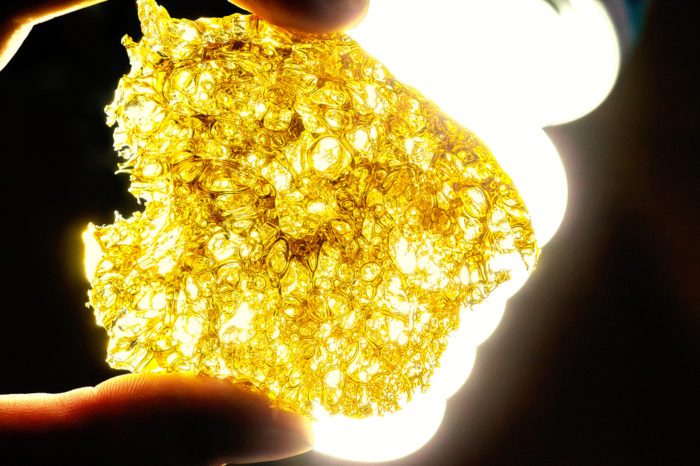THC Pills are easy to dose, travel well, and provide all day relief.
THC Pills have a lot of advantages and a couple drawbacks. If you’re curious to try them, you can even make a batch in your own kitchen. These are a potent form of cannabis extract in a capsule. Due to the fact that THC is not water-soluble, THC pills often come infused with some form of oil to enhance absorption.
Most forms consist of THC concentrate and these tend to come in various dose sizes from 2 mg and upwards. Certain blends consist of the addition of CBD and various terpenes to enhance the medicinal benefit.
What are the Advantages of Consuming THC Capsules?
Firstly, by orally ingesting the capsules, patients avoid any of the harmful carcinogens associated with smoking. This not only benefits overall health, but also provides a discreet way to medicate.
One common issue with edibles is dosing. But, THC capsules made from THC concentrate, allow for easy and accurate dosing. Commercial solutions will generally undergo lab testing for potency thus allowing patients to titrate their dose. If the THC pills are homemade, then dosing may consist of trial and error initially.
What Are the Disadvantages of Consuming THC Capsules?
THC capsules do have some downsides. One issue is the lack of other plant compounds in many commercially available solutions. To best experience the effects of medicinal cannabis, a whole plant extract is preferable.
A THC concentrate in isolation (an isolate) is a solution that lacks the terpenes, flavonoids, and minor cannabinoids that help modulate the medicinal effects. In Dr. Ethan Russo’s 2011 study Taming THC, he documented the surprisingly potent role that terpenes play in medicinal cannabis. Known as the entourage effect, it’s the natural synergies that play out between plant compounds that can really enhance the medicinal properties of cannabis.

In comparison to combustion methods, THC capsules require some time for the effects to fully manifest. As with other forms of edibles, these may require thirty minutes to two hours to kick in. This is due to the fact that the THC present in the pill needs to undergo a transformation into 11-Hydroxy-THC in the liver. This takes time, but for many it’s worth the wait due to the more potent effects of this molecular THC configuration.
One final drawback associated with THC pills is the associated cost. When averaged out by weight, the costs can seem high. But remember, you’re paying for convenience more than anything else. The quality of the end product is unlikely to match the medicated effect of some quality flower with its full spectrum of compounds still intact.
How to Make THC Pills at Home
Whether from flower, kief, shake or some form of extract, THC capsules can be easily made at home. Here’s what you’ll need to do.
- Decarboxylate the cannabis. This process ensures that the acid form of THC, known as THCa transforms into THC. Thirty minutes in the oven at 240°F should do it.
- Next, infuse the decarbed cannabis with some form of fat. Butter, coconut oil, and olive oil all work well for this. Mix the cannabis and oil together in a mason jar, close the lid securely, and place it in a saucepan of simmering water for four hours. Ratios are typically 1 cup of oil for half ounce of cannabis.
- Once complete, strain the solution through a cheesecloth to remove any particles or plant material.
- Using a syringe or dropper, fill the capsule tray. You may find it useful to place your capsule tray in the freezer for several minutes beforehand. This tip makes it easier to close the capsules.

What Conditions are Best Treated with THC Pills?
While nothing beats a full-spectrum extract, THC pills can still prove useful for certain conditions. These are perhaps best used for medicinal cannabis consumers with a high tolerance to THC.
Pain Relief
One of the top benefits associated with THC is pain relief. Several scientific studies exist on the topic. A 2014 study published in Current Pain and Headache Reports and carried out at the University of Utah, documented just how cannabinoids provide relief for neuropathic pain. The mechanisms of action in pain relief are complex, but THC essentially activates the CB1 receptors in the brain which are intricately linked to pain perception.
Appetite Stimulation
Patients undergoing intense chemotherapy often struggle with appetite. A University of California study published by the International Brain Research Organization (2012) demonstrated that THC is helpful in stimulating appetite. Researchers found “cannabis administration was associated with significant increases in plasma levels of ghrelin and leptin” — the two all-important hormones that regulate hunger.
Tourette’s Syndrome
Research suggests that THC is helpful in treating the symptoms of Tourette’s Syndrome without provoking any negative side effects. A study, published in the Journal of Neuropsychiatry and Neurosciences (2017), found that cannabis consumption brought about a sixty percent decrease in Tics scores. But more interestingly, in a repeat of the experiment with THC alone, improvements were still noted, although not as pronounced as with the full spectrum.
THC Pills Aren’t Perfect
To conclude, THC pills won’t replicate the medicinal effects acquired with the ingestion of the entire spectrum of plant goodness. But, these will provide relief for certain conditions, and what’s more, they can be discreetly consumed on the go.





